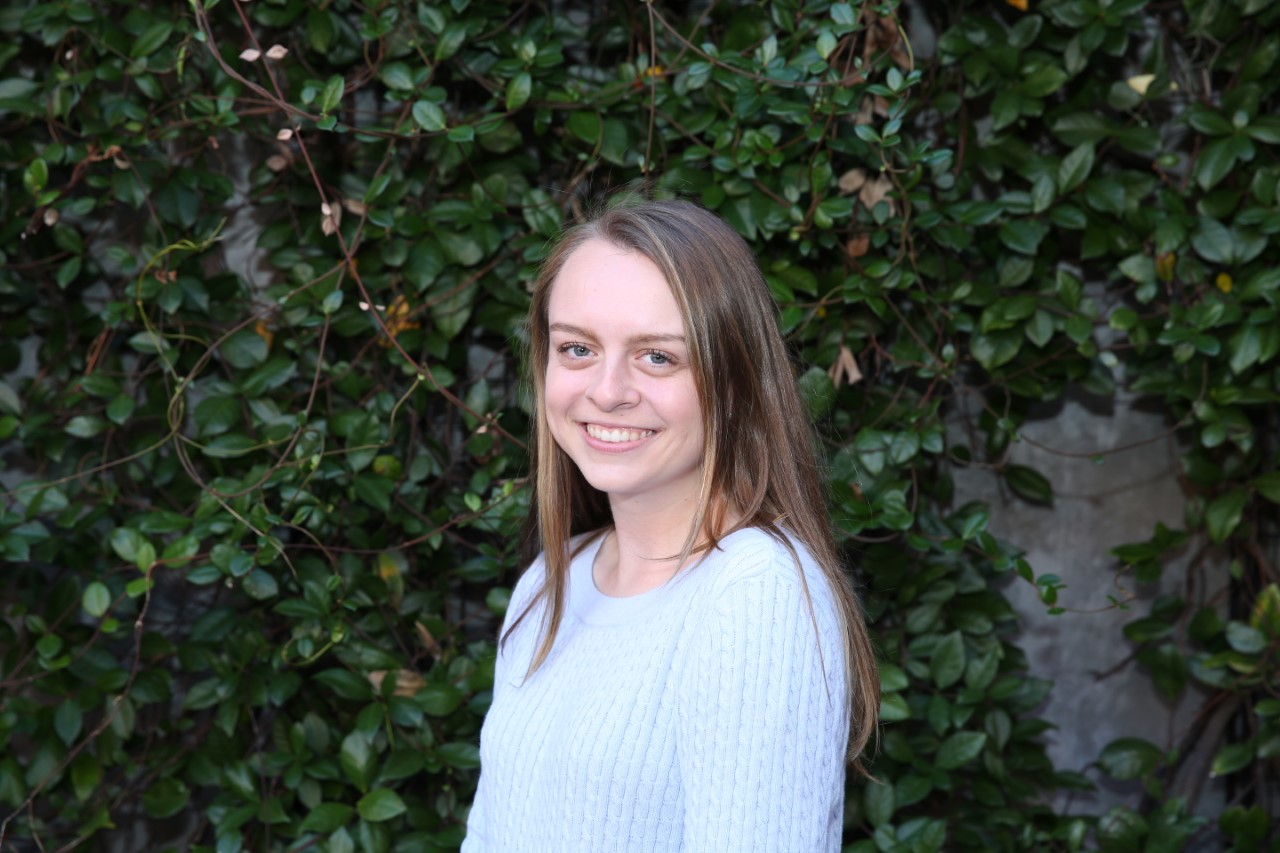Student Spotlight: Grace Robbins

Grace Robbins is a junior majoring in classical archaeology and minoring in museum studies and anthropology, in the Department of Classics, part of the College of Arts and Sciences. Robbins, a Presidential Scholar and Honors student, actively participates in FSU’s Undergraduate Research Program through the Center for Undergraduate Research and Engagement and presented at the President’s Showcase in November 2020. She received an IDEA Grant for her research on current archaeological practices at the Roman site of Cosa in Tuscany, Italy.
Where are you from? When is your expected graduation date? What brought you to FSU?
I was born in Tallahassee but am from Sarasota, Fla., and I plan to graduate in Spring 2022. When I consulted with alumni and toured campus, I realized FSU could be my academic home. Receiving the Presidential Scholarship sealed the deal, and I am pleased I decided to attend.
What inspired you to choose your major and your specific area of research?
In high school, I struggled to determine how my passion for storytelling would translate into a major and future career. At FSU, I concentrated my interests in history, language, and anthropology in the classical civilizations major. After participating in an archaeological excavation at Cosa, my interests shifted from language to material culture as a means of storytelling, and I changed my major to classical archaeology. My area of research melds archaeology, archival history, digital scholarship and anthropology. I was inspired by a desire to assess 20th century archaeological practices and understand how we construct historical narratives.
What aspect of your area of study do you find most fascinating?
I enjoy studying the motives and philosophies of ancient figures and the intersection of ancient and contemporary historical events. An emerging aspect of my field is the movement to recognize local workers who are integral to excavation work but have largely been left out of historical records. I am most interested in cultural heritage and how ancient material culture impacts contemporary society.
What was it like to work in Cosa, and how did your passion for archaeology assist you? Do you plan to further your work abroad?
Working on the excavation at Cosa was one of the most rewarding experiences and introduced me to a field I had only associated with Indiana Jones. Cosa is an ancient Roman colony located in modern-day Ansedonia, in Tuscany, Italy, where FSU runs a joint excavation site with Bryn Mawr College. I worked as a student volunteer archaeologist alongside a coalition of other universities during the summer of my freshman year. This excavation exposed my passion for archaeology, and I loved digging up ancient materials and learning about them. I am not sure if I will work abroad again, but I would love to dig at Pompeii someday.
Who are the faculty or staff members that have helped or inspired you?
Archeology professor and co-director of the Cosa Excavation Andrea De Giorgi has been crucial to my success as my IDEA Grant supervisor and program mentor. Archaeology professor Nancy de Grummond provided me the opportunity to prepare 3D printed models for her exhibition, “Printing the Past.” FSU doctoral candidate in archaeology and assistant director of Cosa Allison Smith has become a personal mentor along with Matthew Hunter, the digital scholarship technologist at the Office of Digital Research and Scholarship and supervisor of my internship. I am also grateful for Craig Filar, director of the Presidential Scholars program, for his encouragement to pursue fellowships to learn more about myself.
How have your roles as a Presidential Scholar and Honors student helped prepare you for academic success?
These programs have provided communities that eased my transition into college. As part of the Presidential Scholars program requirements, I participated in the Undergraduate Research Opportunity Program my freshman year, and now I am an advocate for undergraduate research as a UROP leader and a member of the Student Council for Undergraduate Research and Creativity. The Honors Program’s class sizes and course selections encouraged me to diversify my studies and engage topics I would have otherwise overlooked.
What inspired you to be a UROP leader?
Without UROP, I would have never attended the Florida Undergraduate Research Conference in Spring 2019 to present my own research and meet other student researchers. Through a workshop on archival research, I realized research is applicable in all fields, especially the humanities. Being a UROP leader helps me share my appreciation for undergraduate research with other students and help them discover their own opportunities.
What do you like to do when you’re not doing schoolwork or research?
Before COVID-19, I was an active member of the FSU Irish Ensemble in the College of Music, which I joined to continue playing guitar despite my busy schedule, and it was an extremely enriching experience. I’ve learned Irish tunes and performed at local Tallahassee pubs with non-students who have been playing this music for decades, and it’s a community I’ve grown to love. I also enjoy writing poetry, watching old movies and visiting local parks.
Although you might miss FSU, what are you looking forward to in your post-graduate life?
I plan to pursue a master’s degree in cultural heritage and museum studies. I am most interested in cultural heritage rescue initiatives focusing on protecting world heritage sites in the Middle East. Post-grad, I want to work in the museum sector to grow educational programs and spread awareness about cultural heritage — not just its history but its purpose in our daily lives.
What advice do you have for fellow students?
I live by the quote set over the doors of Dodd Hall: “The half of knowledge is to know where to find knowledge.” FSU is an incredible school, brimming with resources you can use to find what inspires you. Chase your curiosities now because, while sometimes it’s about being in the right place at the right time, most of the time it’s about knowing who to ask.
